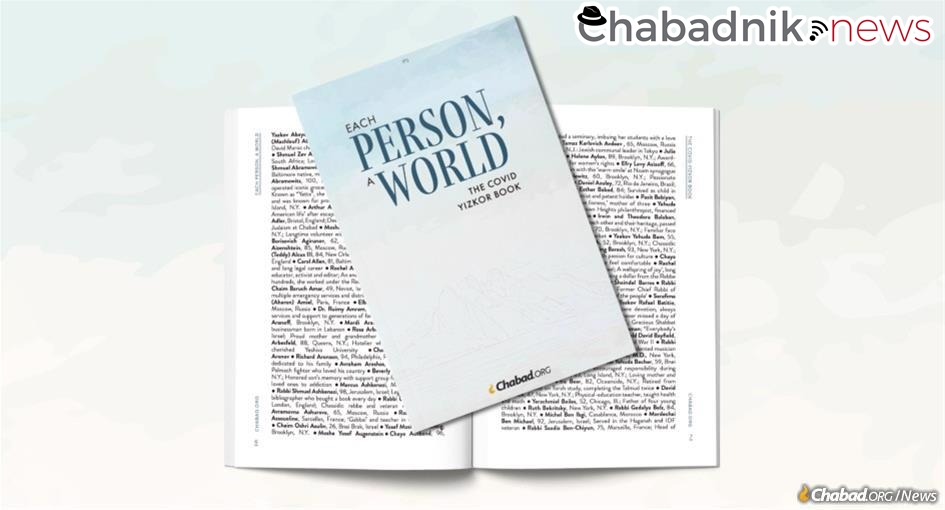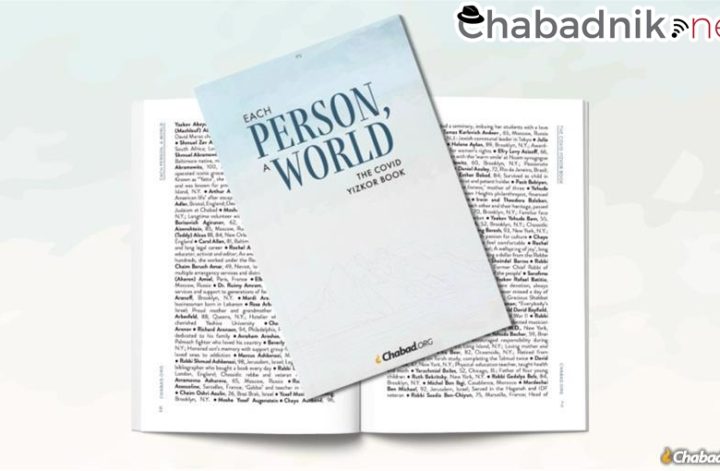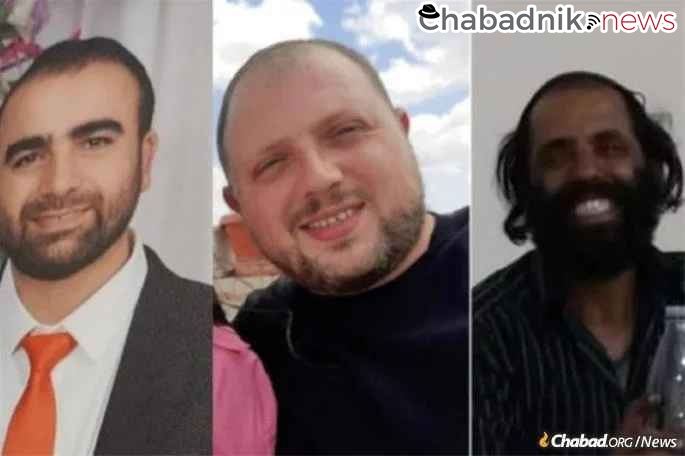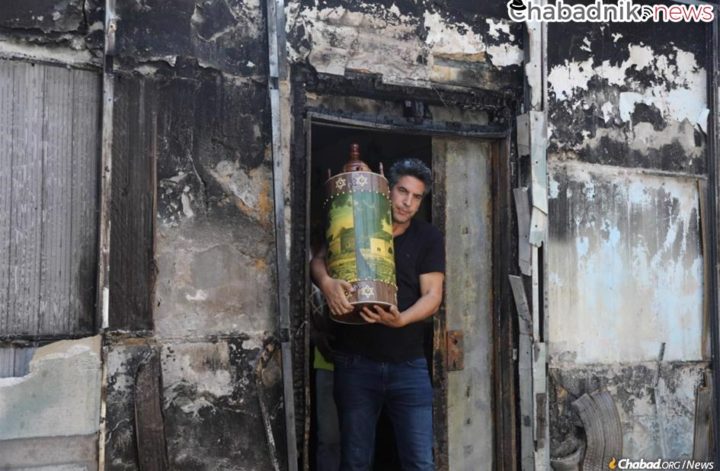On Yom Kippur Yizkor book will serve to memorialize those lost to the pandemic

Yom Kippur, the holiest and most solemn day of the year, is around the corner. For many, the holiday offers not only an opportunity for forgiveness and a new beginning, but also a time to remember loved ones who passed on, especially during the Yizkor remembrance prayer. This Yom Kippur, which begins several minutes before sunset on Wednesday, Sept. 15 and concludes after nightfall on Thursday, Sept. 16, standing among the rows of veteran Yizkor-sayers, some first-timers will recite these unfamiliar lines for their family members who passed away during the current coronavirus pandemic.
Last August, Chabad.org published “Each Person a World,” the most comprehensive list of Jews lost as a result of complications due to Covid-19, then comprising more than 1,200 victims from around the world. The project continues to this day with new names added to the list each week and published in batches periodically. The list stands now at more than 1,800 souls.
While individuals grieve personal losses, the Yizkor service pays homage to communal losses as well, as the time-honored prayer reads, “Remember with mercy the pious, the upright and the perfect ones, the holy communities who gave their lives … .”
So as this Yom Kippur approaches, Chabad.org has published the list as a Yizkor book, available to download as a customizable PDF, to be used in congregations around the world. Whether from Sydney or Berlin, Chicago or Calgary, those who passed in the pandemic will be remembered by congregations in prayer, never to be forgotten.
With the wholesale destruction of Jewish communities large and small during the Holocaust, a new take on an age-old tradition arose: Each shtetel’s martyrs would be inscribed in a Yizkor book, name by name, to be read aloud at the Yizkor service by the survivors. Thus, the names of thousands of victims of the Nazi horrors have been preserved and remembered.
Collective Commemoration of an Age-Old Tradition
In March 2020, as Covid began its deadly march across the globe, no community was spared. Chabad.org, the world’s largest Jewish website, felt a responsibility to record each and every victim that succumbed to the coronavirus. A mammoth task, it took a global team—all working from home—based in Australia, New York, Jerusalem and elsewhere to liaise with colleagues around the world and scour hundreds of news outlets in several languages to gather the names.
In those early days, Tzali Reicher and Mendel Super, both locked down in Australia, worked with a team halfway around the world, gathering the necessary information.
Reicher and Super wrote hundreds of biographical sketches and brief obituaries, scouring for information online and talking to families, friends and loved ones. This effort was joined by Chabad.org staff editors Menachem Posner and Dovid Margolin, who penned longer obituaries for figures as diverse as the former chief rabbi of Israel to the leader of an underground network aiding Soviet Jews. Other contributors include Eli Rubin, Mordechai Rubin, Motti Wilhelm and Aharon Loschak. The hundreds of obituaries were edited and published by Carin M. Smilk and Chabad.org’s News Editor, Yaakov Ort.
The brainchild of Rabbi Motti Seligson, director of media relations at Chabad.org, the project has given a name and face to more than 1,800 covid victims to date. From Morocco to Paris, Los Angeles to New York, each soul has a story to tell.
‘The Somber Feeling of the Work’
“When we started the project, unfortunately, we had no idea how large it would become,” says Reicher. “At first, as every death from the coronavirus was unusual; it was relatively easy to find names and information about those who had passed. As the number of lives lost to the pandemic rapidly rose and victims were just presented as a statistic, it became increasingly difficult. We searched online, researched funeral-home websites, sifted through Facebook posts and newspaper obituaries, and, of course, heard word of mouth through the global Chabad network.”
The quest to include as many Jewish people as possible through interviewing their families about their lives was difficult, but rewarding, says Super: “People were definitely touched when we reached out to them and moved by the fact that we wanted to hear about and remember their loved ones. It’s always sensitive when interviewing someone for an obituary, but for the most part, people were more than happy to provide us with information.”
The team worked around the clock to keep up with the deluge of names flooding in.
“With the whole house dark at 2 a.m. in Melbourne, I was speaking to people from New York to Amsterdam, learning about souls lost to the pandemic who had lived full lives until weeks before,” said Reicher. “The quiet in which I wrote only added to the somber feeling of the work I was doing and turned these people from nameless victims of a raging pandemic to real people who lived and touched others—a feeling that only grew and developed as the months went by with no end in sight.”
“This project was to remember all Jews—everyone that we could find information about, even if it was just their name,” adds Reicher. “In order for families to ensure that their loved ones are remembered and included in our tribute, we incorporated a page on the site for people to submit the names of their family members and friends.”
May the memory of those who have passed be a blessing for the Jewish people and all humankind, and their stories a living legacy for all.




